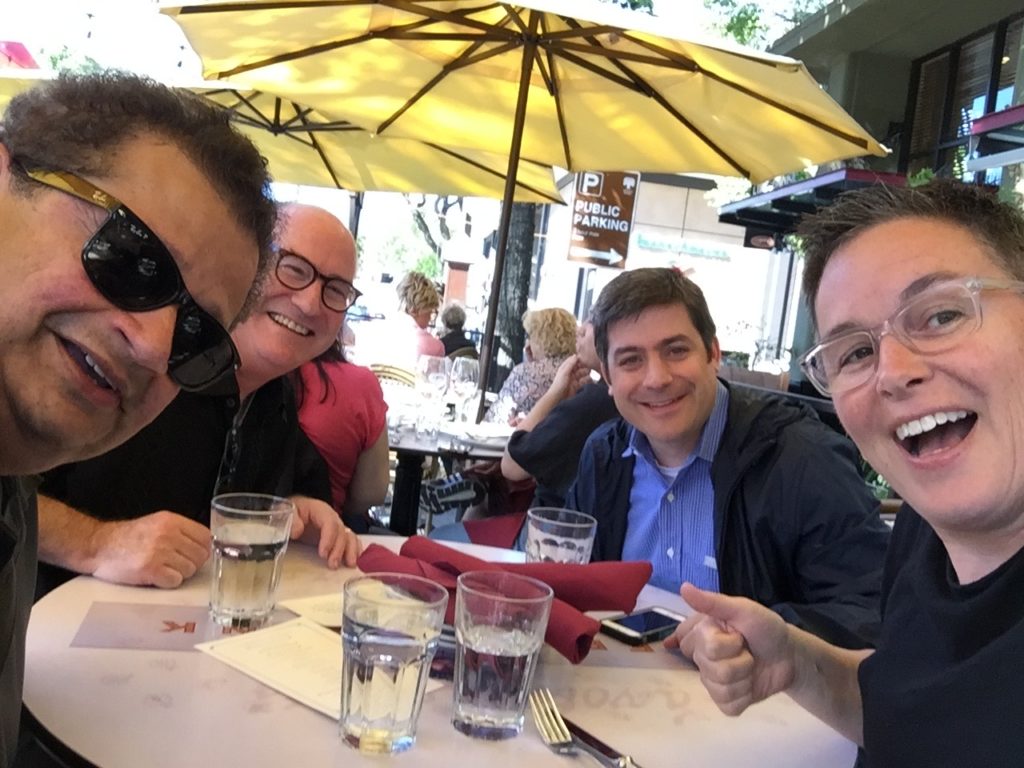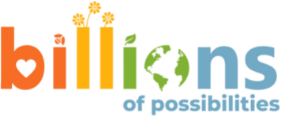Last night at a quasi-structured dinner party in the Bay Area, I was asked to name someone who has deeply influenced the person I am today. Immediately my mind leapt to some fantastic teachers, healers, and mentors. The list is long and I am filled with gratitude for every one of them. But I wanted to pick just one for my two minutes of sharing. I went with Heather Hackman, a white woman who has devoted her life to helping her fellow white people center their lives in racial and social justice. She has profoundly influenced my thinking about what large-scale change is and how/why to go about it.
A few weeks ago she said to me, “Becky, what it all comes down to is this: are you willing to work for liberation?” I’d like to pay her gift forward by asking you the same question: Are you willing to work for liberation, and what does liberation mean for you?
My answer was/is a full-body yes, I am willing to work for liberation. What that looks like in word and deed is a work in progress, and something I’m willing to share about here. While the Billions Institute specializes in helping folks design and lead large-scale change, if we’re not advancing liberation, what is the point of any of this at all?
One of the things we teach large-scale change leaders to do is explore their “genius,” a concept I learned from two more teachers of mine, Gay & Kathlyn Hendricks. The gist of genius is what do you love to do, that you’re really great at? And do more of that as you’re leading transformation in the world.
When we teach Genius at the Skid Row School, I witness our participants struggling with the fear that spending time in their genius is selfish or indulgent or frivolous. They’re up against a firmly embedded unconscious belief that for work to be valuable it has to be “hard,” or for transformation to happen, there needs to be a “struggle.”
But as we create a context where maybe your genius is exactly what the world needs of you, I always feel the room get almost giddy with excitement. “You mean I could do the things I love to do, that don’t even feel like work to me, and make the world a better place?”
Not only do I believe that to be true, I believe if you do not do that, and if you do not intentionally create the space for your team members to do that as well, you and your colleagues will eventually grow resentful and burn out.
I believe we have a responsibility as leaders of large-scale change to create contexts that bring out the best in everyone around us, and for that to spread throughout our extended networks.
I see stepping into our genius as directly tied to working for liberation. I know that I personally have experienced a tremendous boost of freedom and the joy each time I let go of doing something that is not in my genius and replace it with more contribution from my genius. And every single time this increases my impact for the better and the bottom line of the Billions Institute.
I could stop there, but it would only be half the story.
The other day I was catching up with a graduate of the Skid Row School who is a Latino man. I have tremendous respect and affection for him and have seen his unique genius in action. Like me, one aspect of his genius is that he is at his best when he is spontaneous and taking risks.
He told me about an experience he had had recently where he decided to bring his genius for risk-taking and spontaneity to his work. You’ll have to trust me that what he did was pure genius and I don’t want to go into details to protect his privacy. But as he was showing up in his genius – something he tried to do that I get KUDOS for doing almost daily – he was told, “that’s not how we do it here. You’re not meeting our expectations.”
He jokingly said to me, “easy for you, Becky, to be in your genius.” And I appreciated his gentle ribbing, but like Heather’s question, “Are you willing to work for liberation?” his comment stayed with me for days to come.
I don’t have pat easy answers to this, but I do sense that all of us who are invested in facilitating big change might be leaving genius untapped by expecting – demanding – that it show up in ways that are deemed “appropriate” for work settings. Who decides what is “appropriate?” And what are we all losing (white people, too?) by accepting those norms as “good?” If these questions interest you deeply, I recommend starting with Tema Okun’s piece on “White Supremacy Culture.”
I asked one of our fellows, Michelle Molitor with The Equity Lab about the difference experiences people may have in expressing their genius depending on their race, and what advice she might offer to people of color who get push-back like my friend. She advised people first to assess the situation and the power dynamics thoughtfully, and not to give up the power that you have. She quoted Alice Walker, “The most common way people give up their power is by thinking they don’t have any.” The question is how will you choose to use the power you have?
She reminded me of the foundational practices of our fellowship program: notice what is happening, experience the sensations and emotions it brings forth in you, express in a way that matches your experience, and take action that is aligned with your essence and advances your purpose. If you assess that it is unsafe for you to speak directly, consider seeking the support of a white ally.
Another fellow, Lindsay Hill, Director of Diversity, Equity, and Inclusion at the Raikes Foundation, joined our conversation and chimed in with the long-term effects of this kind of dynamic on people of color. In an oppressive work environment, the choice can sadly be to forget their genius and conform (which happens often and results in less genius being expressed – a true loss for all of us!) or to leave and try to find an organization who will accept them how they are.
Lindsay’s comments reminded me of my very first conversation with Heather Hackman. The Billions Institute had been invited by the Raikes Foundation to do some work supporting grantees advancing racial equity in education. I was eager to jump in, but realized I had little training or background in diversity, equity, or inclusion. I also looked around at my entirely white team at the Billions Institute and felt this wave of shame and embarrassment. Heather asked how she could help me. In perhaps the most awkwardly formed question ever, somehow I spit it out that our company was all white and we had the opportunity to hire some more people and I knew we had to do something different, but I wasn’t sure what. I mean, I was awkward.
Heather stopped me in my tracks. “Hold up. Hold up. Hold up. You’re asking the wrong question. What you’re really asking is ‘how can I keep on doing things how I’ve always done them, but bring on some Native Americans or people of color so it looks better to the outside world, but not change on the inside.” I hadn’t really thought about it that way until she said that, but guilty as charged! That’s when I leaned in and got really curious. “Well what do I do instead?”
Heather’s response stayed with me and I’ll share with you here: “Unless you inherently change your approach, adopt a holistic lens with which you look at yourself, your business, your mission, the work you do, then you might attract some Native Americans and people of color to work for you, but they will have to leave too much of themselves out in the parking lot to be able to put up with your whiteness so they’ll either stay and be miserable or they’ll leave.”
If you know me at all, you know I love a good challenge. Mission accepted! With that deeply loving provocation, Heather invited me into one of the most important and exciting learning journeys of my life to date.
Working for liberation – for me right now, today – means both supporting change leaders in identifying their genius, and pointing to the injustice that sometimes people are given less latitude to contribute in their genius because of the color of the skin or because the overall work culture is unconsciously oppressive.
I wonder if there are any remaining ways that I am blind to people’s genius because I want to see it on my own terms, terms that are invariably informed by my socialization as a white person in a white dominant culture. I don’t want to miss out on anybody’s genius, not for a second! There’s too much at stake for any of us to leave any parts of ourselves in the parking lot each day.
I commit – and re-commit – to working for liberation for all human beings. I’d love to hear your thoughts on this too, so please respond directly if you’d like.
– Becky

After we wrapped up the training today, Joe and I were able to say hi to two dear friends and advisors, Stanford Professors Bob Sutton and Huggy Rao (Huggy is rockin’ the sunglasses). They’re the authors of Scaling-Up Excellence, a book we both love and recommend often.
They’ve just launched Season Two of the FRICTION podcast on May 30th.
FRICITON is part organizational design, part therapy.
This season features
- Eric Reis of Lean Start Up fame
- Michael Arena who is Chief Talent Officer at General Motors
- Annie and Craig Stoll who founded and run the Delfina Restaurant Group in the SF Bay area
- and Bob’s cousin Sheri Singer who produced 37 made-for-TV movies, including Halloweentown
I will definitely be listening in!
